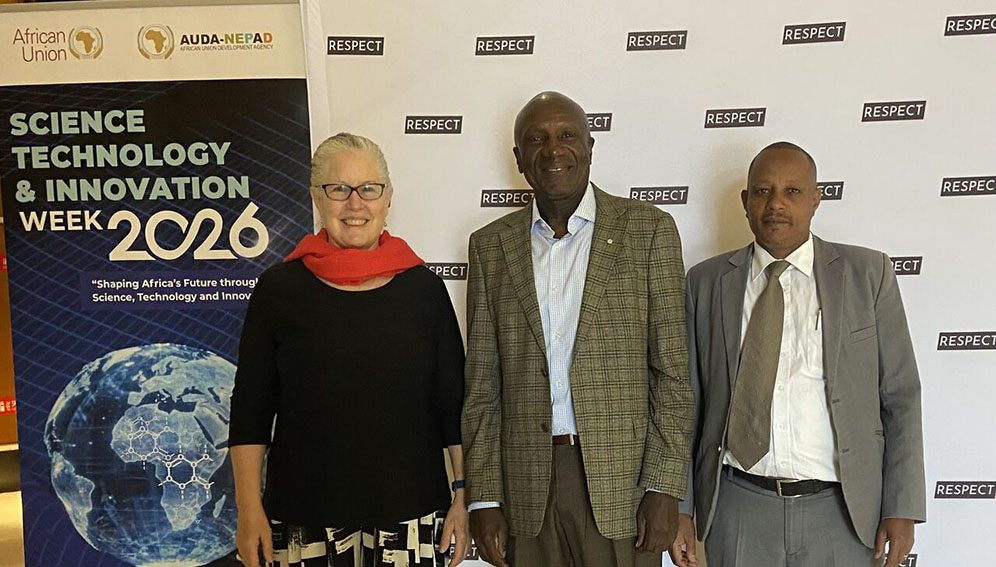SGCI News
Mozambique’s new science, technology, and innovation (STI) policy will drive economic growth and sustainable development while addressing societal challenges, researchers say. Approved by Mozambique’s cabinet on 21 May, the policy…
- Mozambique approves key science, tech and innovation (STI) policy
- The policy aims to grow science and technology capacity for sustainable development
- SGCI funded a review of the country’s STI policy
Mozambique’s new science, technology, and innovation (STI) policy will drive economic growth and sustainable development while addressing societal challenges, researchers say.
Approved by Mozambique’s cabinet on 21 May, the policy aims to leverage STI to achieve sustainable development and productivity in Mozambique.
“The policy represents the government’s commitment to strengthening and building the requisite scientific and technological capabilities for sustainable development,” said Sergio Pereira, an auxiliary researcher at the Mozambican Ministry of Science, Technology, and Higher Education.
The policy was developed with the support of the Science Granting Councils Initiative (SGCI) Evidence in Policy (Evi-Pol) project and will be implemented by the Mozambican Ministry of Science and Technology.
Darryn Whisgary, research manager at the Centre for Science, Technology, and Innovation Indicators and lead of SGCI’s Evi-Pol project, said SGCI provided financial support to Mozambique’s National Research Fund (Fundo Nacional de Investigação, or FNI) to draft it.
Whisgary said the SGCI team guided representatives from the Mozambican ministry throughout the policy development process and were now collaborating with Mozambique’s FNI to organise multi-stakeholder events to discuss the policy’s implementation.
He said the SGCI’s Evi-Pol project funded a comprehensive review of the STI policy, led by expert consultant John Ouma Mugabe, from the University of Pretoria in South Africa,

Mugabe said the policy adopts an integrated and holistic approach to respond to complex local, national, and global challenges.
“Though previous approaches and efforts have yielded some results, they have not had a transformative effect on the economy and citizens of Mozambique,” he said.
“The SGCI Evi-Pol project played a fundamental role in developing the new policy to meet Mozambique’s key development goals.”
Rose Entsua-Mensah, former director-general of Ghana’s Council for Scientific and Industrial Research, said STI policy provides the framework to create the institutions and harness the available science, technology, and innovation capacity for economic and social development.
She believes there is a need to build broad-based civic and political constituencies for STI policy.
“This involves establishing platforms for science-society-policy dialogues to help democratise research and development priority-setting, leverage private sector investments into STI for SDGs, and establish public scrutiny for STI,” she said.
Article written By Francis Kokutse
Related News
Building Africa’s science future: inside the SGCI alliance
As Phase 3 of the Science Granting Councils Initiative launches on the margins of the African Union Summit in Addis Ababa last week, the SGCI Alliance Chair explains why this moment marks a decisive turning point for African science. Cephas Adjei Mensah describes what is…
Open call: Support for science granting councils in Sub-Saharan Africa
The International Development Research Centre (IDRC), through the Science Granting Councils Initiative (SGCI), has launched a call for proposals to support science granting councils in Sub-Saharan Africa in the establishment and operationalisation of the Capacity Strengthening Hub under Phase III of the SGCI-3. The Hub…
SGCI phase 3: USD 42M boost for Africa’s STI agenda
It was an exhilarating moment as the Science Granting Councils Initiative (SGCI) Phase 3 funding announcement was officially made yesterday during the Science, Technology, and Innovation (STI) Week 2026, held in Addis Ababa, Ethiopia. The STI Week, organised by AUDA-NEPAD and the African Union and…
SGCI funded projects
Rwanda’s integrated approach to sustainable agriculture and nutrition
Project Titles & Institution Areas of Research Number of Projects being funded Project Duration Grant Amount In-Kind Distribution Council Collaboration with other councils





